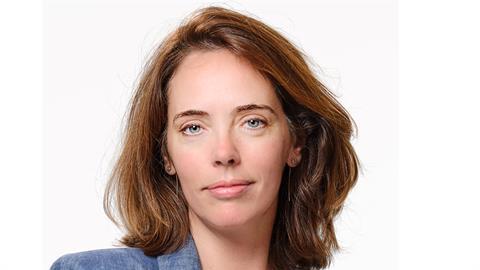At a time when some of Europe's largest asset managers and property companies are setting themselves net-zero goals, ABN Amro's chief economist Sandra Phlippen says we should understand that decarbonisation entails a true 'societal transformation'.

'Decarbonisation is not about business as usual,' Phlippen said, speaking at ULI Europe’s annual conference in Brussels earlier this week. 'To achieve it, society at large has to reduce its energy usage and maybe even decrease its welfare.'
Phlippen expressed concern that recent global shocks - namely the Covid pandemic and, more recently, the Russia-Ukraine conflict - will have an impact on corporates' decarbonisation agendas. 'My main worry is that your short term worries about rising interest rates are going to prevent you from moving quickly on decarbonisation,' she told attendees at the conference.
However, she reassured investors and asset managers that looking at the current situation, the most probable scenario for Europe is that inflation will remain limited to the oil and gas sectors and that the capacity to invest will still be there in a few months' time.
'In the US, inflation has already started broadening and is now nestled deep into the economy, and this is a trigger for a second event: wage increases. Wage increases tend to trigger more demand and subsequently more inflation, so inflation becomes self fulfilling and very problematic. Back to Europe, inflation is a very different one,' she explained.
'It is mostly about energy and other commodities which are imported into the Eurozone and not home grown. This means that we cannot do that much about it. Wage growth is still nowhere, at 1.17%. It might increase to 2 or 3% but it is not anywhere near the rate where wages are going to drive an increase in prices. [...] This means that purchasing power will decrease and we will see this from the second semester of the year. At the same time, all confidence indicators are going down, having an effect on people's willingness to use savings and spend extra and keep the economy going. If this is going to erode growth in about six months' time, what we will be having is a situation where inflation will be contained and limited to energy. This will mean that there will be no room for the ECB to increase interest rates and that the capacity to invest and spend even on decarbonisation will still be there.'
Tina Fordham, geopolitical strategist & founder of Fordham Global Foresight and former Chief Global Political analyst at Citi, said that the Russian invasion of Ukraine is only the latest challenge to globalisation.
'Globalisation has slowed by every indicator following three recent global challenges (i.e. the GFC, the pandemic and the conflict in Ukraine). The flow of cash and people has slowed, we are seeing a nearshoring of the supply chain. This is a fundamental change in trends.'
The question, Fordham said, is how could Europe get it so wrong? 'In fact, we didn't understand that for Putin geopolitical power matters more than short term economics. Europe instead applied its own expectations. Also, Europe acted on the post-Cold War hope that more integration and trading would ensure peace and stability. This hasn't transpired, in fact it backfired.'










